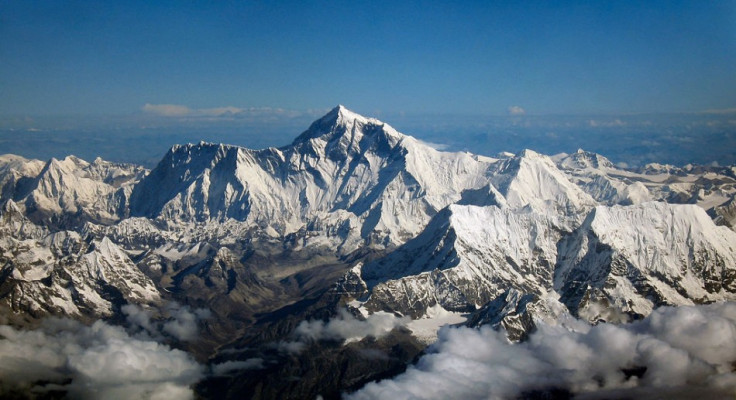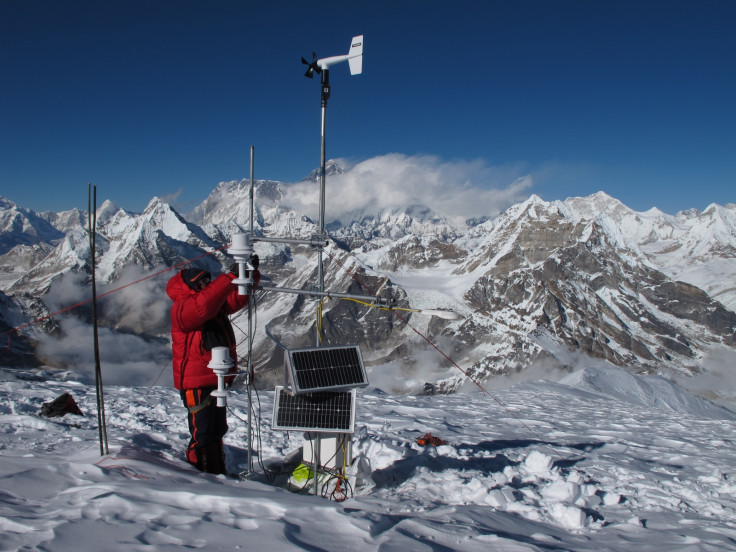Everest glaciers 'will disappear by 2100' if greenhouse gas emissions continue to rise

The glaciers on Mount Everest will all but disappear by the end of the century if greenhouse gas emissions continue to rise, a study has found.
An international team of researchers has found glaciers in the Everest region of the Himalayas could be extremely sensitive to global warming – and that sustained ice loss is likely over the next 85 years.
The study, published in the journal of the European Geosciences Union, found that glacier volume could reduce by between 70% and 99% by 2100.
Study leader Joseph Shea, from Nepal's International Centre for Integrated Mountain Development, said: "The signal of future glacier change in the region is clear: continued and possibly accelerated mass loss from glaciers is likely given the projected increase in temperatures."
Glaciers in High Mountain Asia – the region including the Himalayas – contain the largest volume of ice outside of the polar regions. Researchers looked at the glaciers in the Dudh Kosi basin in the Nepal Himalaya – home to Mount Everest.
They used field observations and data from local weather stations to test a model of glacier change over the last 50 years. They then examined how sensitive the glaciers were to future climate change by applying temperature and precipitation scenarios to the historical data, then tracking how the glaciers responded.

Results depended greatly on greenhouse gas emissions: "Our results indicate that these glaciers may be highly sensitive to changes in temperature, and that increases in precipitation are not enough to offset the increased melt," Shea said.
Higher temperatures will increase the rates of snow and ice melt, as well as changing precipitation from snow to rain at critical elevations, where glaciers are concentrated. These factors were found to reduce glacier growth and increase melt.
Glacier loss will impact the availability of water and consequentially agriculture and hydropower generation. Ongoing retreat could also lead to reduced water supply for local populations.
It can lead to the formation of lakes dammed by glacial debris – if these are breached by avalanches and earthquakes there could be catastrophic floods 100 times greater than the average in the Kosi basin.
Researchers said that it is important to reduce greenhouse gas emissions to try to prevent this loss. They said that while their results "need to be taken very cautiously, as considerable uncertainties remain", the findings are "clear and compelling" through even the most conservative climate change scenario.
© Copyright IBTimes 2024. All rights reserved.






